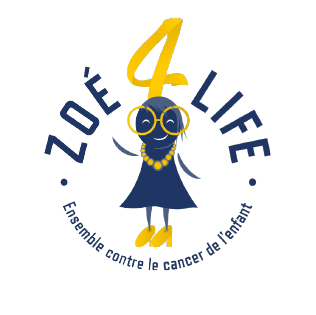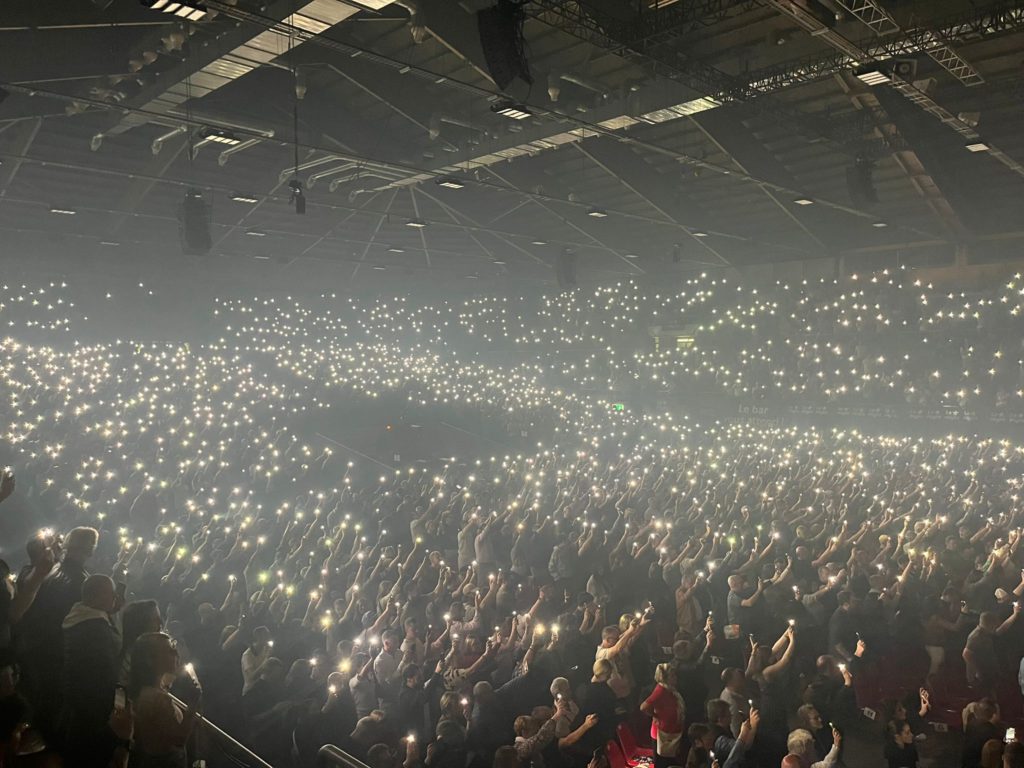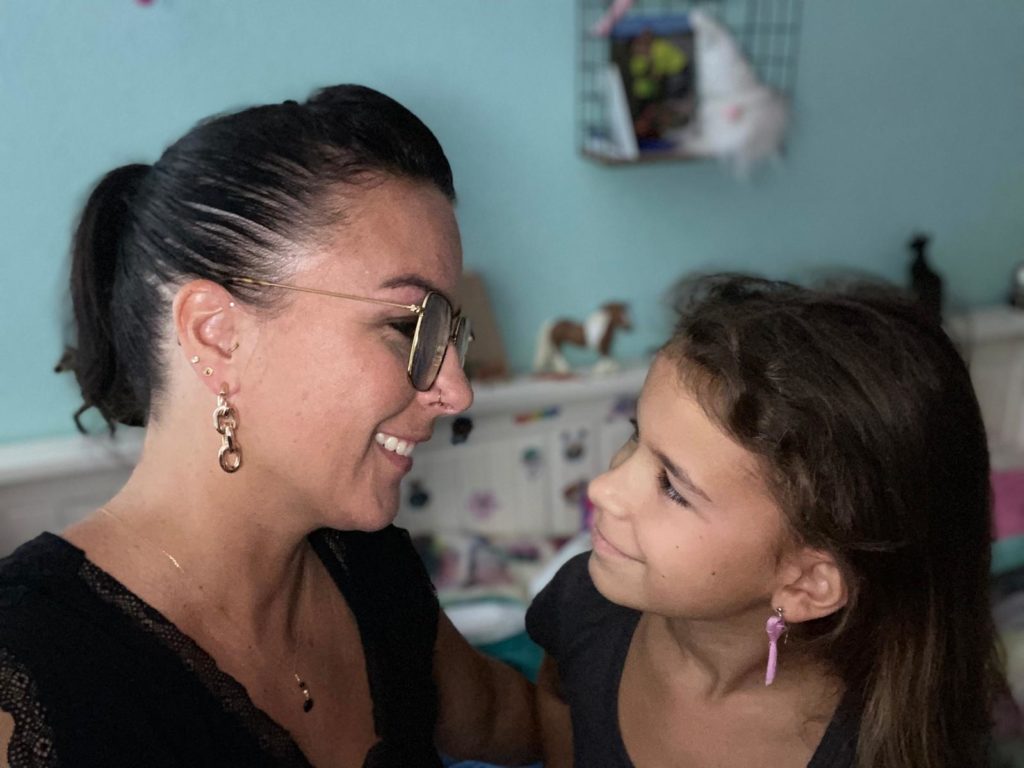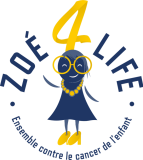This story has no end
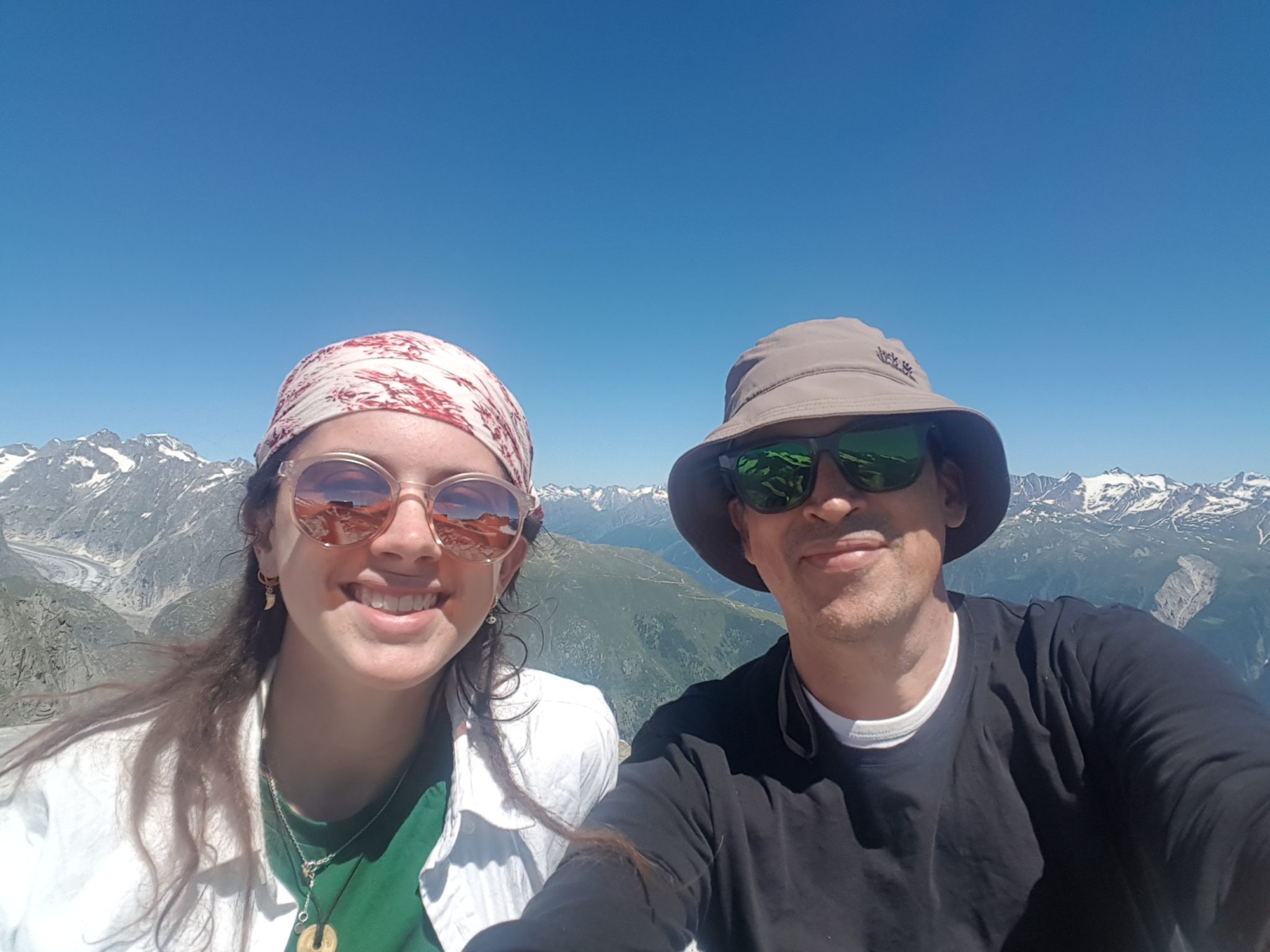
Before the diagnosis, my wife spends a year making appointments for our daughter with different specialists. I think she's wasting her time. Does Emily have headaches? I had headaches too when I was her age, and I'm sure she'll get over them. My wife disagrees, but her family treats even minor bruises with ice packs and arnica oil. She makes another appointment, this time with an endocrinologist. I don't know what an endocrinologist does, but I'm sure it's nothing like this.
"My daughter has headaches," I said, annoyed that I was the one sitting in her consulting room to explain this.
"I hear a gurgling in my ears," Emily adds.
He X-rays his hand to assess its bone development, measures its size, asks a few questions. He seems as puzzled as I am as to why we're here. I take Emily home, determined to discuss the subject of over-medicalization of common ailments with my wife.
An ophthalmologist detects the first clue when he sees pressure on Emily's optic nerves. He advises my wife to take her to the pediatrician as soon as possible. The pediatrician sends them to the hospital and phones them in advance. My son and I go out for pizza, until my wife calls and tells us to come in.
Although I'm from England, I live in Switzerland and I hear Emily's diagnosis in French. They've found a lesion on her cerebellum, a contrast, something that shouldn't be there, a shadow. They're not sure what it is and need to operate, soon if not immediately. Whatever our plans, they will have to be put on hold.
We're looking forward to Emily's thirteenth birthday. It's just a few weeks away and we've booked a log cabin in the woods for her and her friends. Instead, we have to face the possibility that she won't be there to celebrate it. The thought is too overwhelming to consider, so we refrain, focus our attention on the next thirty minutes and devote our energy to staying positive, calming our kids, working on logistics until we're so busy with the present, we don't have time to think about the future. Judgment will come later. I admit that with me, my daughter would still be taking painkillers. I've even come to think that without my wife, my daughter would still be taking them. When her headaches, which I'm sure everyone has, would have killed her.
More doctors arrive, and my wife and I try to imprint their names and titles on our memories, hoping that they will reciprocate and take responsibility for our daughter. Yet there are so many of them, and their specialties require so much deciphering of unfamiliar vocabulary, that I end up only making out one or two of their white-coated colleagues.
I look up Dr Marwan* on the hospital website, needing to know more about this person before entrusting my daughter to him. I find it reassuring that he practiced in France, although I don't know why. What does a pediatric neurosurgeon look like? Like this, apparently, sitting on the edge of Emily's bed in front of an audience of junior surgeons, wearing a chain and a black turtleneck sweater under his white scrubs, one leg crossed over the other, a leather shoe pointing towards the ceiling.
I once heard a neurosurgeon on TV describe his work as a blood sport, and I examine Dr. Marwan for signs of the predator. He seems empathetic, kind even, but I wonder if his calm demeanor betrays a certain ruthlessness. Even though it confuses me, I understand his need. It's a trait you need when darkness and aspirins have failed and you have to open the back of a child's neck and tunnel through his brain to a tumor.
We sign these consent forms, running through the list of possible side effects, as if we could deny the dangers of the operation. Other children might wake up unable to speak, but not our Emily. Her operation will succeed and she will suffer no ill effects. Yet cancer is a bit like growing old: you gradually say goodbye to things you thought would last forever. If she survives, but with difficulty concentrating, then I could live with that, or with the kind of paralysis you might see in a stroke victim; it's surely reversible. In this internal negotiation, I can only lower my expectations. I just want my daughter back alive. I don't care what state she'll be in.
We meet Dr. Domizia*, the pediatric cancer specialist with the beard and the talent to present the complexities of treatment in a reassuring way. I'm curious to know what kind of person chooses to work in pediatric oncology, but he doesn't mention this information on his CV. He warns us that after removing the tumor, it will take a few days before they can determine whether it is malignant and/or has spread. He refuses to make any pronouncements in advance, as this creates expectations. This doesn't stop me from analyzing his words, looking for a clue, hoping that the true meaning will fall into the palm of my hands if I turn them over and over again for long enough.
The operation is scheduled for Sunday, or perhaps Monday or Tuesday. We stay by Emily's bed to keep her company. My wife calls me when I go to buy a chocolate bar.
"They're taking her down right now."
I help steer the bed to the pre-op room, where we don gowns and slippers with which I struggle to get the elastic over my shoes, with fingers that suddenly refuse to work. A parade of increasingly elderly anesthetists come to ask Emily questions and tell us they're in charge. The last one speaks with a folksy accent and the benevolence of Santa Claus. Would you trust such a man with your daughter? I would!
We say goodbye with jokes, kisses and smiles on our faces. If it's the last time we see each other, we want the memory to be beautiful. Emily has been growing out her hair for months and it's falling to her shoulders. It's the same hair color as mine, dark brown and black. We know they'll shave it.
"See you later my love."
She sticks her tongue out, I pull a funny face, and we watch Santa roll it, holding back our agony until we've deposited our charlottes and slippers in the big black bins and found a private place to lose our heads.
One of our closest friends is an anesthetist, and she sends us a message in the early afternoon.
"Everything's fine, but they're moving slowly. It'll be finished later tonight."
We haunt the living room. Parents whose children are having their appendixes removed just have to make do with the hard chairs. We have the luxury of occupying the two sofas. The nurses give us tokens for the coffee machines and passes for the staff cafeteria. They call at 11pm. My wife answers after the first ring.
"Everything went well. You can visit him now."
We take the elevator up to the fifth floor, which looks like a basement because the hospital is built into the side of a hill. It's like the underworld down there; strangers pass each other along green corridors lined with empty beds and lit by neon strips, corridors that seem to get longer as you go down them. We enter through a door marked "Pediatric Medical-Surgical Intensive Care".
Emily is in bed, surrounded by doctors. They perform neurological tests on her and administer medication. Analgesics, steroids, anti-inflammatories, antibiotics. What I take to be dry blood on her chest is a scratch where something has been pressed forcefully against her chest. His neck is bent at an uncomfortable angle and his head is wrapped in a bandage.
"Hello, darling."
She doesn't open her eyes, but her lips tremble.
"I'm thirsty," she says.
She can talk.
"What is it?" I say, wanting to hear her voice again, to confirm that she can still speak.
"I'm thirsty."
A nurse hands my wife an oversized cotton swab and a glass of water and dabs the inside of Emily's mouth. The room is partially lit by strip lights under the counter. A monitor reads her heart rate, blood pressure and something I don't understand. Her alarm sounds and the numbers start flashing. Red, yellow, blue. The nurse studies it and, finding nothing urgent, shushes it.
Emily spent her first nights on Earth in a similar room. This time, I pushed my hands inside her incubator and gently rubbed her belly as I spoke to her through the Plexiglas. Incredibly for me, she stopped crying. This situation has the same urgency, but this time there's nothing I can do. Even if I could get past the doctors, she seems so fragile that I'm afraid to touch her in case I break something.
I can feel the other children in the room. I don't want to consider them because I recognize that their suffering would add another layer to mine. My duty is to stay, but the tension is unbearable and I feel the weight of the floors above me weighing on my shoulders. I start to panic and leave as soon as I can, to get back to my son, to contact our families, not to see my daughter fighting for her life.
I don't remember every night, but I do remember one night when Emily had been transferred to the high dependency ward. The nurse called me "Daddy" and asked for my help.
"Give her this, Dad... Hold this for me, Dad."
Emily's head is at an uncomfortable angle. Her neck has been in a clamp for seven hours and her neck muscles are very stiff. It will take weeks of physiotherapy before she is back to normal. She also has a fractured skull caused by the clamp's teeth biting too deeply. Later in her stay, cerebrospinal fluid seeped into her pillow. That night, I spoon-feed her cold applesauce to soothe her throat and, once the nurse has left, I sit and watch her fall asleep.
The alarm sounds on her monitor and the nurse returns. She notes the readings and leaves. This happens a number of times. I can feel the panic returning. My brother calls.
"What are you doing, Matt?"
"I'm begging for Emily's heart rate monitor to go up."
A doctor arrives and we have a quiet conversation at her bedside. It's one of the drugs she's taking. It depresses her heart rate. Nothing to worry about, he tells me, as he recalibrates the monitor. I want to accept his assurances, yet my daughter's life seems to be at stake. Should I trust him and the science I've always respected, or should I make a fuss until every experienced doctor available has gathered in my daughter's room and agrees with this diagnosis? I wait a moment, berating myself for my indecision, wondering if I'm watching my daughter die before my eyes. An hour passes, then another. The alarm doesn't sound. I leave when I'm sure she's safe, and wonder if, despite what I'd previously believed, the act of dying might in fact be commonplace.
I bump into Dr. Domizia in a hallway late on Friday afternoon after the operation.
"I've been looking for you. Emily's lab results are back in time for the weekend," he says.
I appreciate his consideration and we find an empty room. We sit down face to face.
"The news is good. Emily's tumor was benign and the surgeons think they've cleared it all up."
I grab his elbow. He stops talking and fishes a handkerchief from a box on the table.
"It was a low-grade infantile astrocytoma. It's a very common tumor in children."
He knew in advance. I'm sure he knew.
He writes down the name of the tumor for me in case I want to do some research. I put the piece of paper in my pocket and tell him that if I have any questions, I'll ask him directly rather than relying on something I've read on the Internet. I keep the paper just in case.
I'll break the news to Emily. Her Aunt Glenda* is here. She's probably come to pray, which makes things a little awkward because, at best, I consider myself agnostic.
"I have good news," I said. "Your cancer is benign, which means it's not going to spread, and Dr. Marwan thinks he's removed everything."
Aunt Glenda takes this as a sign that God has healed her and begins to praise the name of Jesus. Emily and I hug as tightly as we can and cry with relief. Later, Aunt Glenda asks me how I think the tumor got there. She says the devil put it there and only God can remove it. I say that Dr. Marwan is at least nominally Muslim, so what does that mean?
Emily remains in hospital for two weeks, complications from her skull fracture delaying her discharge. I help when they change the dressing for the first time. They have to lift her head from her pillow, despite the pain in her neck and the way she holds it and twists to the side. I keep her nightgown on and watch them rub her scar. Another day, I sing "Baby Shark" as a nurse pulls a catheter as long as my forearm from her shoulder. I watch the needles go in, the stitches come out and, like any parent of a chronically ill child, I have scars where no one else can see them. One day, I'll even be able to forgive myself for fleeing intensive care.
My wife and I take shifts by Emily's bed and, in quiet moments, I sit on the hospital balcony and look across the lake to the muscular outline of the Alps. Clouds begin to fascinate me and I buy a manual that names their formations and assigns scores for spotting them.
"Altocumulus lacunosus," I say in geeky self-deprecation and award myself 20 points. Later, I discover something deeply relaxing about sounding out their Latin syllables without needing the book. Emily is interested too, and we watch them unfold in the sky as we dine together on her last night at the hospital.
She celebrates her thirteenth birthday a few weeks later and my wife and I cry in the kitchen when her friends sing, because now even simple words like "Happy birthday Emily" are loaded with meaning.
We go on vacation and watch Emily and her brother chase each other through the waves. One day, as we return from mini-golf, I look up at the sky and see the rarest cloud of all, the Kelvin Helmholtz instability, which has picked up the edge of a larger cloud, transformed into a row of whipped ice cream wedges. The book rates it at 100 points.
"Look!"
I point to the sky, wanting my family not only to see it, but to confirm that my view is not colored by wishful thinking.
"Yes!" Emily shouts and turns to me with bright eyes.
It's there and it's gone. That sounds like a sign that everything would be okay because we're middle-class, thoughtful people who feel guilty when we steal, eat more vegetables than meat and pay attention to our environment.
It was a sign, until it wasn't. Emily's next MRIs reveal a growth in her brain, which Dr. Domizia describes as a remnant of the original tumor that may grow, not grow, stabilize or even shrink. If it does grow, we can wait, consider surgery, chemotherapy and/or radiotherapy. It puts the chances of growth at 50%.
It's growing. Of course it's growing.
We limit this information to our closest friends and family. We turned outward after Emily's initial diagnosis, toward our community. This time, we're looking inward. I'm not sure why. We're exhausted. Are we afraid to carry the others too? Or is the story becoming too complicated to describe in a single sentence? There could be a small element of shame in this, perhaps also a sense of failure. So many people supported us the first time and she's still not cured. Can we really ask them to expend the same energy a second time?
I ask about Emily's tumor, not so much out of curiosity, but more to seek comfort. The website tells me that 95% of children are alive five years after diagnosis. I discuss this statistic with a friend of mine, the husband of the anesthesiologist who called us during Emily's surgery. Their daughter was diagnosed with malignant ovarian cancer as Emily was leaving the hospital.
We take his boat out on the lake and talk about clouds while our sons jump in and out of the water.
"A survival rate of 95% seems pretty low to me," I say.
Of all my friends, he best understands the terror behind my question.
"No one can tell you your child's chances," he says.
We monitor this new tumor with regular MRIs, until one day Emily tells us that she would prefer another operation to the strain of waiting to see if it will stop growing. She wants to be well and continue to grow like a normal teenager. There's no rush, so we schedule the operation for the end of the school year.
This time we have months to prepare. Sometimes we read side by side, other times we kidnap each other's teddy bears and demand crazy, ridiculous ransoms for their safe return. On my way home one day, I see a giant inflatable unicorn in a shop window and buy it on a whim, then call my kids to haul it across town for me.
We try not to think about it. But it's all we think about.
His operation starts in the morning. We've already signed Dr. Marwan's consent forms listing the possible side effects. We understand that Emily faces a higher probability of suffering them this second time. We are no longer in denial. Her brain function may well be impaired. She could be suffering from paralysis. We prepare ourselves for the fact that she may not come back to us.
My wife calls the hospital in the afternoon, long after the operation is over. We wait outside, sitting on a low wall between the parking lot and an office building. I watch her face as the call is transferred again and again between departments to find an answer. The worst-case scenario begins to take shape in my mind. A pediatric intensive care nurse finally takes the call. My wife bends her head towards the phone, listening intently to every word she utters.
"Emily's awake..." she said, relaying the news.
We collapse in front of someone's office window - she's not dead...
"It went well. She asked the nurse if she was from Quebec."
- ... and his brain functions normally.
"We can go see her."
We return to the underworld to find Emily lying in bed with a nurse looking on from across the room. She's fully conscious. There are no doctors coming from all sides. No alarms. Sunlight streaming through the window. It's strangely peaceful. We wait for the hammer to fall - for her brain to swell, her heart rate to drop - and it doesn't. She leaves the hospital a few days later. No complications, no puncture marks on her neck.
I wish I could say "no cancer", but I'm not quite ready for that. I don't have a certificate saying "Your child is cancer-free" that I can hang on the wall and refer to when in doubt or when I want to pat myself on the back for the way I've handled things. The best I can say is that my daughter is cancer-free until we get the next MRI results. She's in remission until at least May 19.
Aunt Glenda believes that if you say a prayer, God will take away your worry. As comforting as it is to believe this, my own faith is more complicated. As I wait with my wife in the pediatric oncology ward for Emily's latest MRI results, I watch a boy and his father leave a meeting room. The boy has a scar on his head that starts above one ear and crosses his skull to the other. He climbs into a wheelchair as his mother, Dr Domizia and Dr Marwan follow him down the corridor. Dr Marwan comes in to shake hands and ask questions about Emily's health. Behind him, the mother leans against a wall. Her brave face melts and she begins to sob in anguish. Dr Marwan crosses the hall to place his hands on her shoulders and console her. I realize that there are people who are as capable of cracking open a skull as they are of showing compassion, and I choose to put my faith in exactly that - not in God per se, but in the broad embrace of human experience that can place two contradictory ideas side by side and make sense of them. I haven't been to church in years, but before Emily's first operation, I begged it to spare my child. I don't believe in God, yet there are no atheists in children's cancer wards.
Emily returns to hospital a few weeks after her second operation to have her appendix removed. While we wait in pre-op, she demonstrates that the quickest way to get a nurse's attention is to disconnect her heart monitor. It's only now, three years later, as I try to make sense of Emily's illness, that I picture the two of us stifling our laughter in the midst of so much seriousness. There was something deliciously mischievous about that experience, an expression of joie de vivre in the broadest sense of the word.
Life has stared me in the face for so long that I often don't see it, so I write these words to myself to unravel the unknown and to keep this joy of living before me. Dying can be banal, life doesn't have to be. Cross on red, talk to strangers, start a food fight in the ICU. Meet pettiness with joy and never forget that "none of the above" is a perfectly acceptable response.
Matthew Wake
* The names of the doctors and aunts have been changed.
English/French translation and proofreading by Nicole Scobie and Gaëlle Solioz
